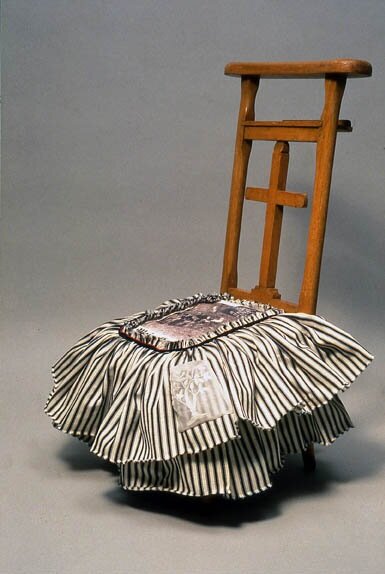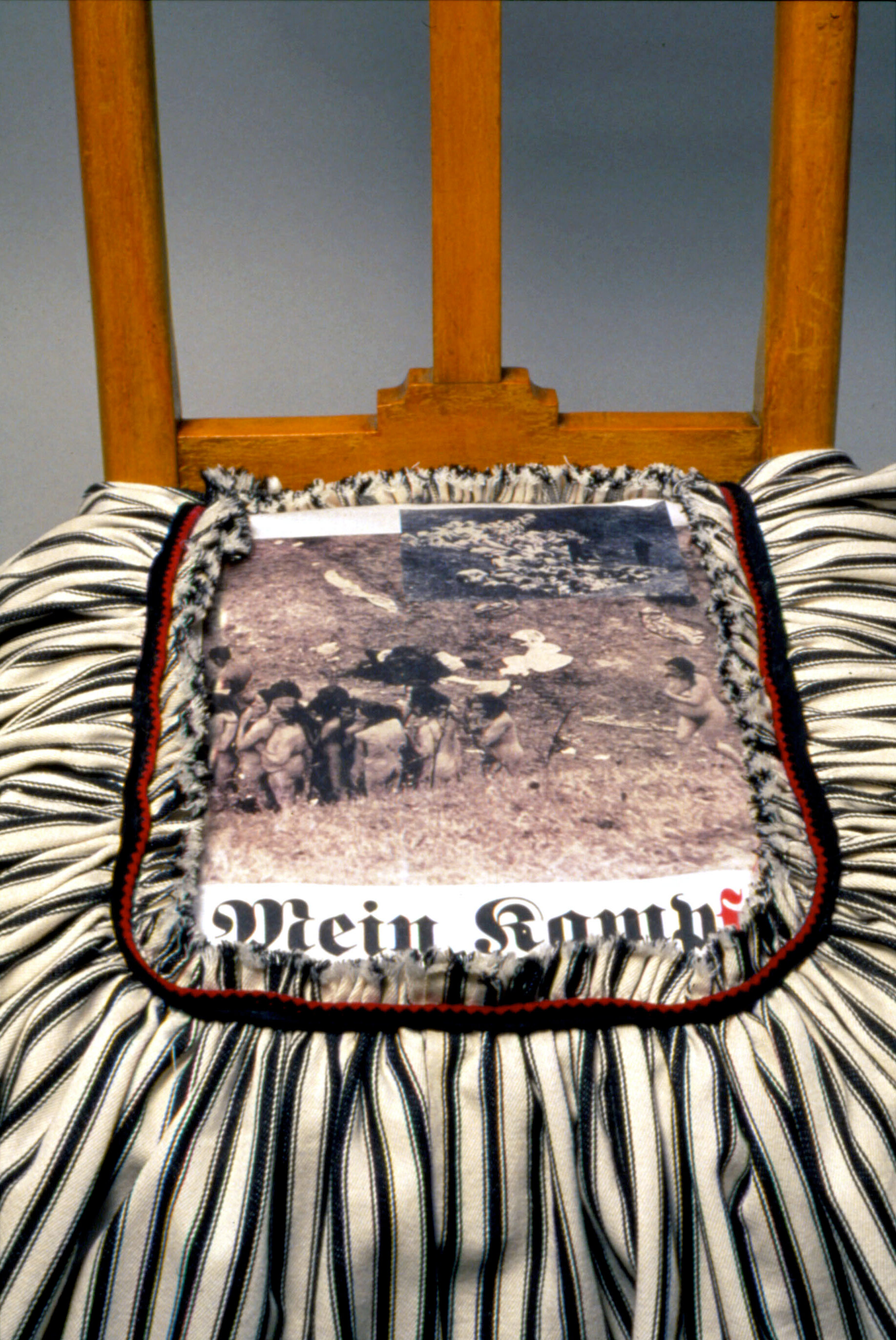Kneeler Prie-Dieu
“One of Coit’s most visceral works, Kneeler…faces the history of the Holocaust head on. This prie-dieu, or ecclesiastical piece of furniture designed to offer an upholstered spot onto which one can kneel in prayer, revisits a highly circulated and extremely disturbing photograph as the decoration printed on its cushion just above the words Mein Kampf—the title in German of Adolf Hitler’s autobiographical manifesto.…Huddling in the lower portion of the photograph placed atop these two words printed in the Gothic script favored by the Nazis until 1941, are images of naked women of all ages huddling in shame, shock, and terror, lined up and awaiting their slaughter at the hands of the Einsatzgruppen, or special forces charged with the mass shootings of mostly Jewish civilians who were then thrown into anonymous, mass graves.
Adding another layer of drama and irony, Coit has “dressed” her kneeler with a slightly gathered, striped cotton ticking “skirt,” a jarring detail given the fact that these women have been stripped of their clothing, a further maneuver designed to strip them of their dignity, just before facing their violent and undeserved deaths. Moreover, though not an exact replica of the pajama-like fabric often used for concentration camp uniforms, the black and white stripes of this two-tiered, flouncy and feminine “garment” allude to the labor camps as well as the nearly inevitable extermination of their inmates. Mimicking the style of an apron, this skirt also includes a delicately embroidered translucent organza pocket whose tree-of-life motif rendered in white crewel work—a pun with cruel—quietly remembers and restores the dignity stripped from these women. Carefully held with black and red trimming that pulls together the black and red of the typography, this wooden kneeler, complete with a cross structurally embedded into its back, further asks what role other religions, and perhaps their clergy, had played during the war.” - Jennie Hirsh, from “Before and After Language: The Art of Madelin Coit”

